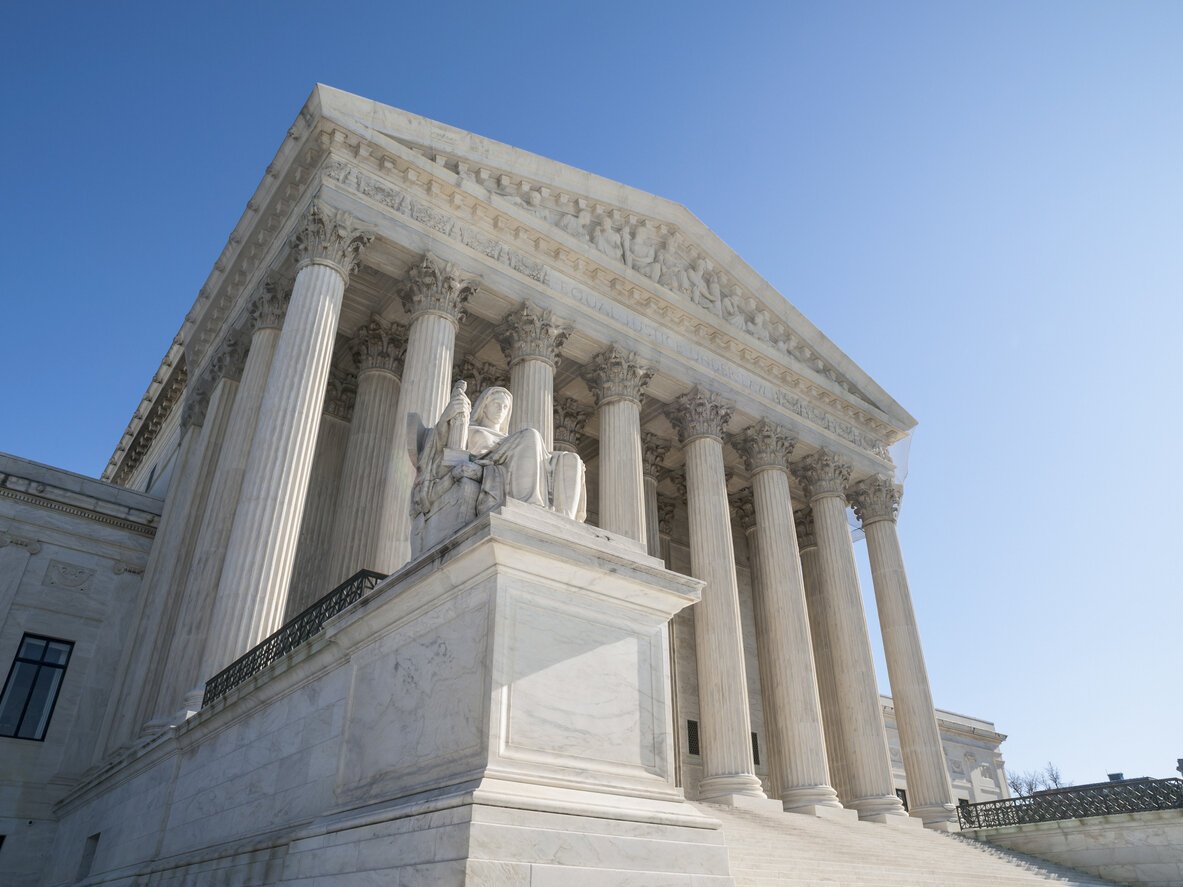Federal Circuit Rules “Willful” and “Intentional” are Not Synonymous
The Federal Circuit affirmed the removal of an Internal Revenue Service (IRS) employee who wrongly believed that the prohibition on disclosure of taxpayer information did not apply if the disclosure was made to her attorney.
Federal Circuit: Yes, You Can Be Terminated for One Bad Email
On October 8, 2021, the Federal Circuit Court of Appeals affirmed that federal employees can be fired for one e-mail, if the e-mail is sufficiently disrespectful. The employee appealed his removal to the Merit Systems Protection Board (MSPB).
OPM Issues Vaccine Requirement Enforcement Guidelines for Federal Agencies
Regarding the “enforcement” of COVID-19 vaccine,. the Office of Personnel Management (OPM) advises agencies begin the disciplinary process as early as November 9, 2021.
TSA Gives Screening Personnel MSPB Appeal Rights
The Transportation Security Administration (TSA) and the Merit Systems Protection Board (MSPB) have reached an agreement granting Title 5 equivalent appeal rights.
Third Circuit Declines to Extend Carpenter v. United States to Prison Calls
The U.S. Court of Appeals for the Third Circuit consolidated the appeals as they raised on common issue – whether recordings of phone calls made from prison were admissible at trial.
President Biden Mandates COVID-19 Vaccination for Federal Employees
On September 9, 2021, President Biden issued an “Executive Order on Requiring Coronavirus Disease 2019 Vaccination for Federal Employees,” an executive order “requir[ing] COVID-19 vaccination for all Federal employees, subject to such exceptions as required by law.”
Congressional Authority to Regulate Intra-Territory Cockfighting Before the Supreme Court
To establish the “ultimate discovery” exception to the exclusionary rule, the government must prove the exception by a “preponderance of the evidence,” the Eleventh Circuit recently held in an en banc decision. The full-court decision reversed forty-one years of Circuit precedent.
Sixth Circuit Holds that Suspicionless Chalking Car Tires for Parking Enforcement Violates the Fourth Amendment
Saginaw, a city in Michigan, chalked car tires to enforce parking regulations. Recently, the U.S. Court of Appeals for the Sixth Circuit considered whether suspicionless tire chalking is a valid administrative search.
Eleventh Circuit Reverses Itself on ‘Ultimate Discovery’ Standard of Proof
To establish the “ultimate discovery” exception to the exclusionary rule, the government must prove the exception by a “preponderance of the evidence,” the Eleventh Circuit recently held in an en banc decision. The full-court decision reversed forty-one years of Circuit precedent.
Federal Circuit Knocks Down VA’s Interpretation of 2017 “Accountability” Law
In two opinions issued on August 12, 2021, the United States Court of Appeals for the Federal Circuit found that the Department of Veterans Affairs erroneously interpreted the provisions of the Department of Veterans Affairs Accountability and Whistleblower Protection Act of 2017 when disciplining its employees. The purpose of the 2017 law, codified at 38 U.S.C. § 714, was to provide for expedited discipline of VA employees, strip MSPB of its authority to mitigate the VA’s chosen penalty, and to impose a less rigorous burden of proof on the agency at the appellate level than a traditional MSPB appeal.
Seventh Circuit: Warrantless Public Pole Camera Surveillance Is Not An Unlawful Search Under The Fourth Amendment
From 2013 to 2016, several law enforcement agencies investigated a methamphetamine distribution conspiracy in Illinois. The government installed three cameras on nearby utility poles to monitor the home of defendant Travis Tuggle. Two cameras viewed the front of Tuggle’s home and a nearby parking area. The third camera viewed a shed owned by codefendant, Joshua Vaultonburg.
Supreme Court Asked to Consider Relevance of Officer Training, Subjective Knowledge to Qualified Immunity Defense
Whether law enforcement officers are entitled to qualified immunity when they knowingly violated their training by retaliating against a person for filming an arrest the officers made in public, was submitted this month for the U.S. Supreme Court’s consideration.
Seventh Circuit: Facebook’s Reporting of Child Pornography Does Not Make It a Government Actor
In 2018, Alexander Bebris sent messages to a woman via Facebook Messenger, a private messaging system on Facebook. Facebook Messenger utilizes PhotoDNA, a Microsoft image-recognition program that provides the capability to scan images uploaded onto the company’s platform and compares the “hash,” or essence of a photo, with a database of known images of child pornography. After a “hit,” Facebook reviews the flagged images and sends them to the National Center for Missing and Exploited Children (“NCMEC”) through the CyberTipline.
Prolonged Warrantless Monitoring From Pole Cameras Not A Fourth Amendment Violation, Seventh Circuit Decides
Using three pole cameras mounted on public property to continuously monitor the exterior of a defendant’s home for 18 months without a warrant is not an unreasonable search in violation of the Fourth Amendment, according to the Seventh Circuit.
Eighth Circuit: Automobile Exception Applies to Temporarily Immobile Vehicles
On April 16, 2019, Des Moines police officers responded to various calls of gunshots fired at an apartment complex. The callers reported 3 potential suspects and 2 cars associated with those suspects. One caller described a suspect as a black male with dreadlocks in a white shirt and dark blue pants, a description fitting Shaun Short that evening. Callers also reported that one of the cars involved was a black Dodge Charger, the same make and model car owned by Short.
Supreme Court Rejects “Per Se” Rule For Excessive Force Analysis
Law enforcement cannot place a resisting person in a prone position regardless of other factors, the Supreme Court held this week. “Such a per se rule would contravene the careful, context-specific analysis” the Court requires.
Supreme Court Holds That Officers’ Pursuit of a Fleeing Suspected Misdemeanant Does Not “Categorically” Justify Warrantless Entry to the Home
Yesterday, in an opinion authored by Justice Kagan, the Supreme Court issued an order on United States v. Lange, and held that the flight of a suspected misdemeanant does not always justify the warrantless entry of a police officer into a home. FEDagent previously reported on this case when the Court granted certiorari.
Tenth Circuit Finds Probable Cause to Enter Defendant’s Trailer and Execute Arrest Warrant
On August 1, 2013, FBI Special Agent Bryan Acee was undercover and observed Matthew Maley engage in a drug deal out of his travel trailer in an RV park in Las Cruces, NM. Acee also observed a green Range Rover and a black Dodge pickup truck nearby. Officers performed a background check on Maley and found that he was a convicted felon on probation.
The Supreme Court Holds That Tribal Officers May Stop and Search Non-Indians on Tribal Lands
In February 2016, Officer James Saylor of the Crow Police Department was traveling on a public right-of-way that passes through the Crow Reservation in Montana. Saylor saw a truck parked on the side of the highway, and pulled up to see if its occupants needed assistance. Saylor approached the truck and spoke to the driver, Joshua James Cooley.
“Community Caretaking” Alone Does Not Justify Warrantless Home Entry, Supreme Court Holds
“Community caretaking” does not create a standalone doctrine that justifies warrantless searches and seizures in the home, a unanimous Supreme Court recently held.





















